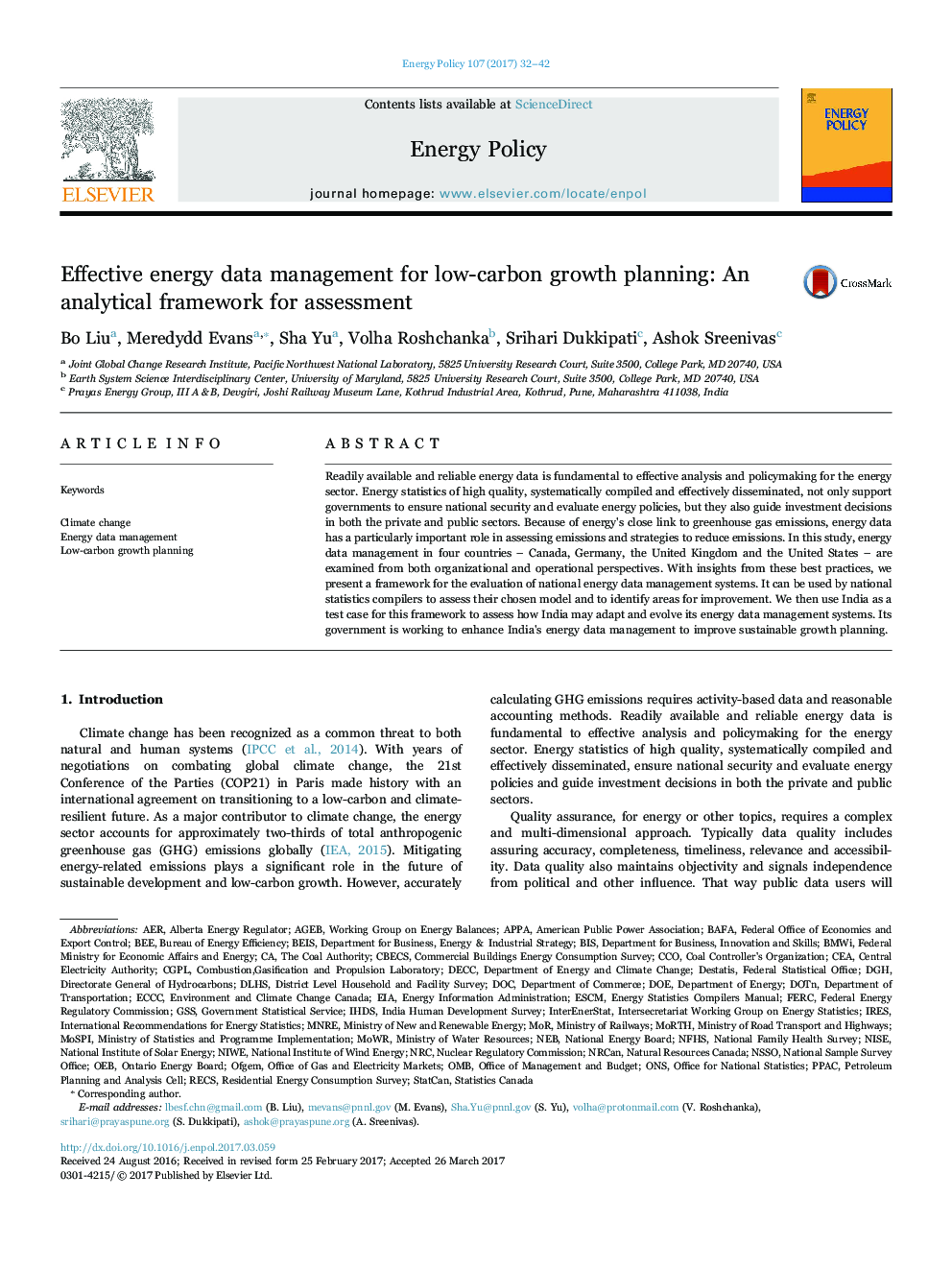| Article ID | Journal | Published Year | Pages | File Type |
|---|---|---|---|---|
| 5106033 | Energy Policy | 2017 | 11 Pages |
Abstract
Readily available and reliable energy data is fundamental to effective analysis and policymaking for the energy sector. Energy statistics of high quality, systematically compiled and effectively disseminated, not only support governments to ensure national security and evaluate energy policies, but they also guide investment decisions in both the private and public sectors. Because of energy's close link to greenhouse gas emissions, energy data has a particularly important role in assessing emissions and strategies to reduce emissions. In this study, energy data management in four countries - Canada, Germany, the United Kingdom and the United States - are examined from both organizational and operational perspectives. With insights from these best practices, we present a framework for the evaluation of national energy data management systems. It can be used by national statistics compilers to assess their chosen model and to identify areas for improvement. We then use India as a test case for this framework to assess how India may adapt and evolve its energy data management systems. Its government is working to enhance India's energy data management to improve sustainable growth planning.
Keywords
DOEOEBCBECSBAFANational Energy BoardOffice of Gas and Electricity MarketsDECCIHDSNiSePPACAPPAFERCNFHSNEBIRESMORNRCRECSOMBDOCCCOGSSAERCeAMNREOffice for National StatisticsEnergy information administrationONSEIACentral Electricity AuthorityBISbEISClimate changeBeeOfgemDepartment of EnergyMinistry of New and Renewable EnergyDepartment of Energy and Climate ChangeDepartment of TransportationKeywordsFederal Energy Regulatory CommissionNuclear Regulatory Commission
Related Topics
Physical Sciences and Engineering
Energy
Energy Engineering and Power Technology
Authors
Bo Liu, Meredydd Evans, Sha Yu, Volha Roshchanka, Srihari Dukkipati, Ashok Sreenivas,
